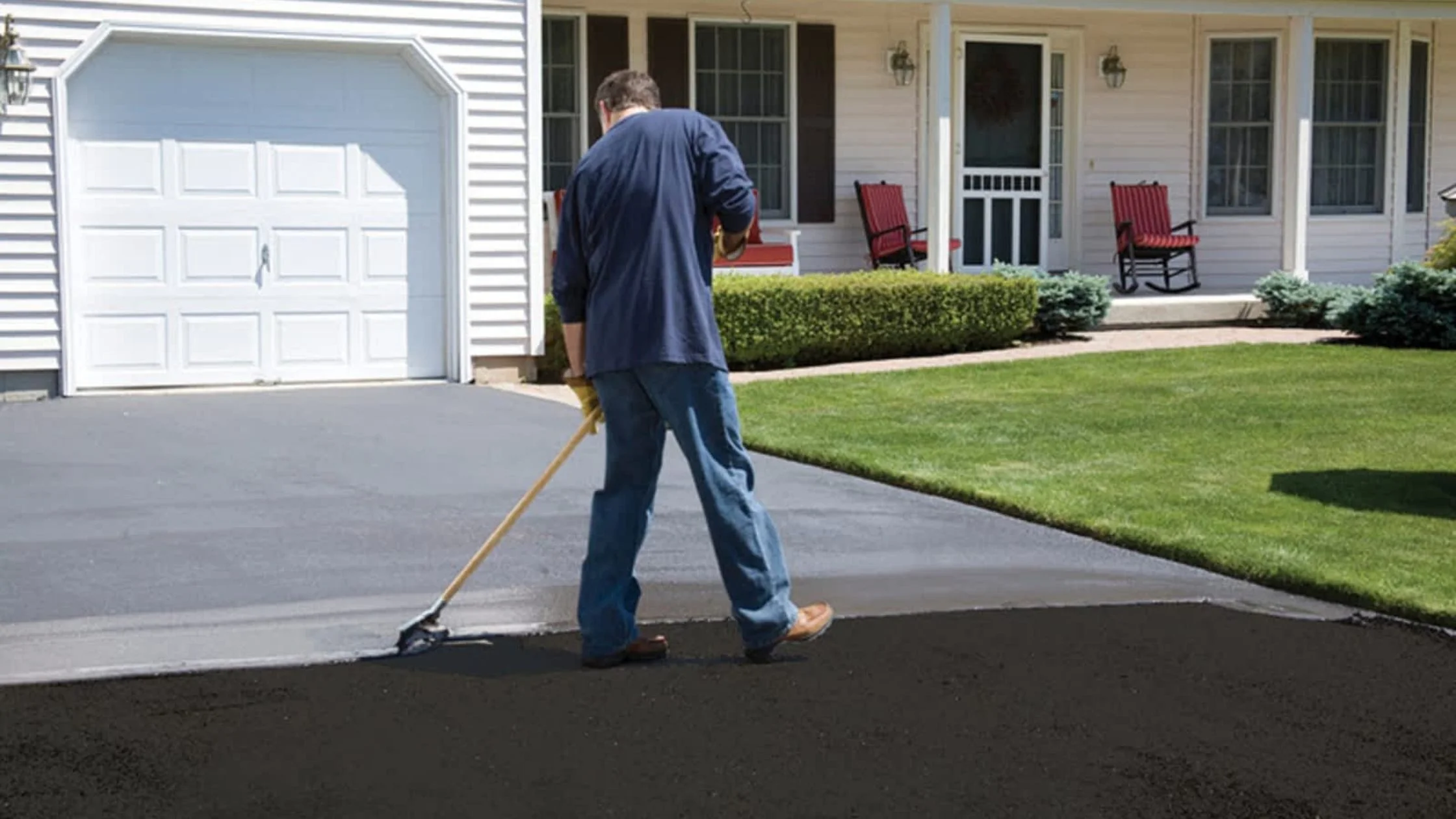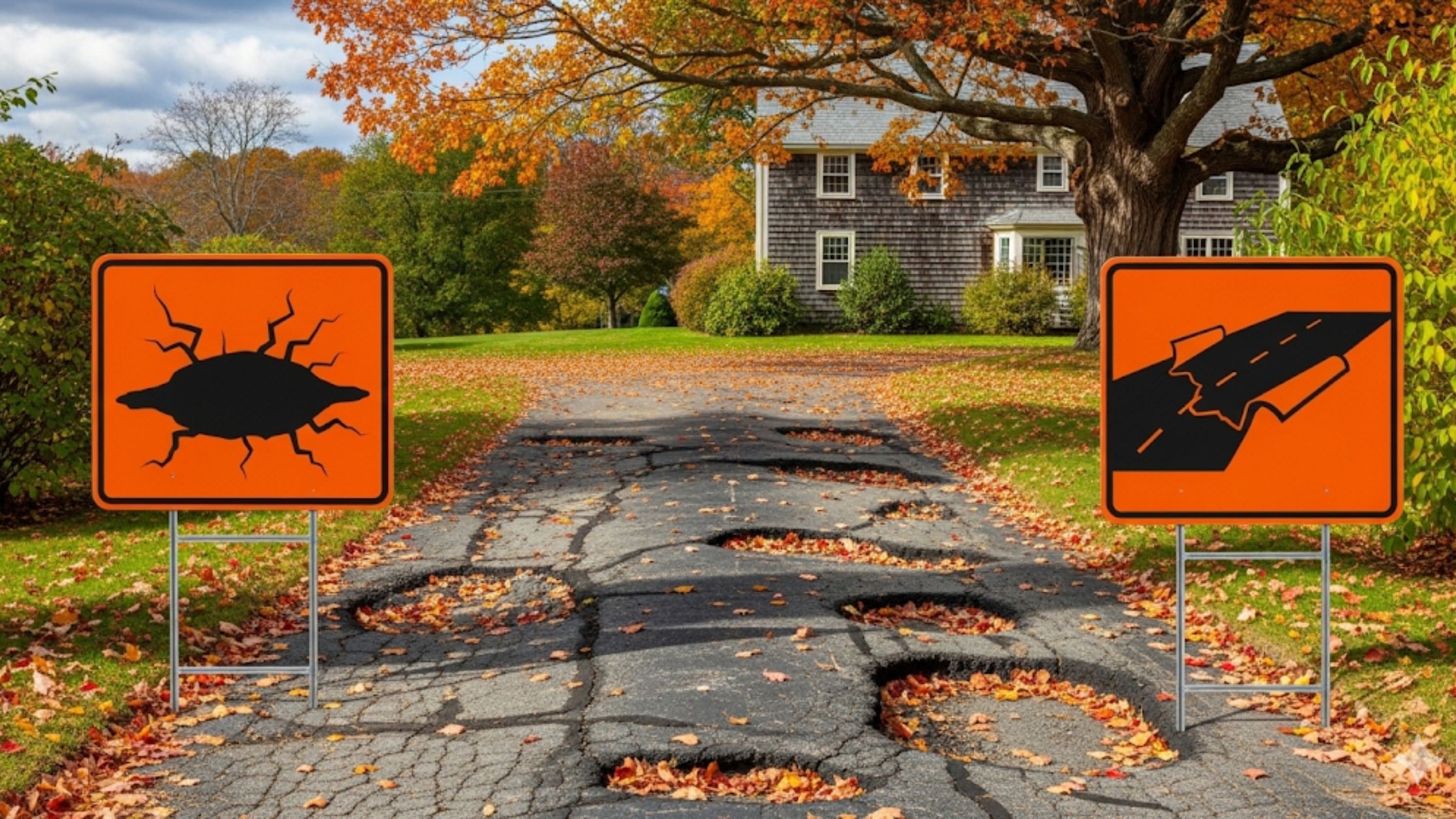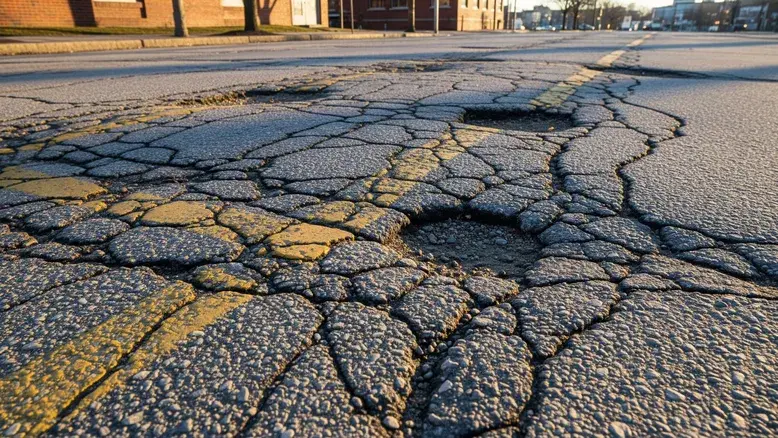Driveway maintenance plays a critical role in preserving the integrity and curb appeal of Springfield homes. Asphalt surfaces endure harsh New England weather, from intense UV rays in summer to freeze-thaw cycles in winter. Seal coating is a proactive strategy that extends pavement life, prevents water intrusion, and reduces long-term repair costs.
Understanding how asphalt deteriorates highlights the value of a protective sealer. By applying a high-quality polymer-modified emulsion, homeowners create a barrier against oil spills, chemical exposure, and oxidation that can lead to cracks and potholes.
This comprehensive guide explores the benefits of professional seal coating, detailed process steps, cost considerations, and environmental factors unique to Springfield, MA. It equips homeowners with insights to make informed decisions and achieve lasting driveway performance.
Why Seal Coating Matters for Springfield Driveways
Seal coating is more than a cosmetic enhancement; it represents a vital maintenance investment for asphalt driveways. In Springfield’s climate, pavement is exposed to deicing salts in winter and blistering sun in summer. Without a protective layer, asphalt binder oxidizes, becoming brittle and prone to splitting under vehicle loads.
Well-sealed driveways resist damage from motor oil, gasoline, and UV radiation. The sealer film replenishes lost asphalt binder, reinforcing the surface and preventing water from seeping into minor cracks. When moisture freezes, trapped water expands, creating potholes that compromise safety and aesthetics.
By prioritizing seal coating, Springfield homeowners can maintain a smooth, uniform finish that boosts property value. Routine applications scheduled every two to three years ensure that driveways withstand seasonal stress, supporting long-term durability and visual appeal.
Understanding Asphalt Deterioration
Asphalt is a composite of aggregates bound by petroleum-based binder. Over time, oxygen and sunlight oxidize the binder, leading to surface embrittlement. Tiny fissures form first, often invisible to the naked eye, then widen under vehicular stress.
Water infiltration accelerates this process. Rain and melting snow pass through cracks, undermining the base layers. During freezing conditions, trapped moisture expands, causing upheaval and creating potholes. Without preventive maintenance, these defects escalate into costly repairs or full resurfacing.
Proper seal coating halts oxidation and blocks moisture ingress. The protective emulsion creates a flexible, impermeable membrane. This membrane adheres to both asphalt and aggregate, filling micro-cracks and extending the structural integrity of driveways in Springfield’s demanding environment.
Key Benefits of Seal Coating
Seal coating delivers a suite of advantages that resonate with Springfield homeowners. First, it enhances asphalt driveways’ appearance, producing a uniform, deep-black finish that complements any architectural style. This curb-appeal boost translates into higher property valuation.
Second, seal coating forms a barrier against chemicals like oil and gasoline. Leakage and spills no longer compromise the binder’s resilience, minimizing surface breakdown. Third, the protective layer deflects UV rays, preserving the asphalt binder from photochemical reactions that cause brittleness.
Cost-effectiveness is another major benefit. Compared to asphalt replacement or full-depth repairs, seal coating is an economical preventive measure. Investing in a protective sealer can save thousands of dollars over the pavement’s lifespan by forestalling advanced deterioration and major restoration projects.
The Seal Coating Process
The seal coating process requires meticulous preparation, precise application, and thorough curing. Professional contractors follow industry-standard procedures to ensure long-lasting performance. Each phase, from initial inspection to final quality check, contributes to an effective seal.
Initial Surface Inspection and Repair
The first step in any seal coating project is a comprehensive survey of the driveway’s condition. Technicians identify cracks, potholes, and oil stains. Small fissures are treated with hot or cold-applied crack filler, while potholes undergo asphalt patching and compaction.
Oil spots receive degreasing agents to remove contaminants that can prevent proper adhesion of the sealer. In Springfield, removing debris such as sand, salt residue, and vegetative matter is critical. A clean, even surface ensures the sealant bonds uniformly to the asphalt.
Cleaning and Surface Preparation
After repairs, thorough cleaning is essential. Professional crews use power washers to blast away embedded dirt, grit, and loose aggregate. Attention to detail during this stage maximizes sealer penetration into the surface texture.
Post-washing, the driveway is left to air-dry completely under favorable weather conditions. Equipment such as sweepers and blowers remove any remaining particles. This dry, debris-free surface stage is key to preventing sealer dilution or washout during application.
Application of Seal Coat
With the surface prepped, contractors apply a polymer-modified asphalt emulsion using squeegee bars or spray equipment. Polymer additives enhance flexibility and adhesion, while coal-slag or silica sand grit may be mixed in for skid resistance on steeper driveways.
Applications typically involve two coats for optimal thickness—one to seal and another to refine the finish. Temperature and humidity readings guide the applicator to avoid premature drying or curing issues. In Springfield, scheduling during mild, dry days is essential for consistent results.
Curing and Quality Assurance
Once applied, seal coating requires controlled curing time before any vehicle traffic. Initial set occurs within four to six hours, but full cure may take up to 72 hours depending on ambient temperature and humidity.
After curing, final inspections check for missed spots, thin areas, or uneven texture. Any deficiencies are touch-up sealed to ensure a uniform surface. This quality assurance step underscores the difference between professional and amateur seal coating.
Choosing the Right Residential Seal Coating Services
Selecting a qualified contractor affects project success. Springfield homeowners should research credentials, read verified reviews, and confirm insurance coverage. Reputable companies employ certified applicators trained in industry best practices.
Many homeowners search for a reliable seal coating service Springfield MA that combines quality materials with local expertise. Contractors familiar with state regulations on VOC limits and stormwater runoff controls deliver compliant results. They also tailor sealant formulations to resist New England freeze-thaw cycles.
Transparent communication on cost estimates and detailed scopes of work helps manage expectations. A professional contract should outline all phases of the job, including crack repair, seal application techniques, and post-project clean-up procedures. These clear terms help protect homeowners from unexpected add-ons.
Materials and Equipment
Premium seal coating relies on industry-grade emulsions with polymer modifiers for abrasion resistance. Sealers are formulated to meet ASTM standards for performance under vehicular loads and UV exposure. Infrastructure-grade coal-slag or silica sand additives ensure traction on slopes.
Equipment choices reflect contractor expertise. Automated spray rigs offer faster coverage for larger surfaces, while squeegee and brush applications allow more control on intricate edges. Vacuum crack cleaning tools and high-pressure washers optimize surface prep.
Professional Standards and Warranty
Certified contractors adhere to guidelines set by organizations like the National Pavement Association (NPA). Compliance with local EPA regulations on runoff and VOC content demonstrates environmental responsibility. These standards ensure sealant longevity and protection against premature failure.
Warranty offerings vary among providers. Limited warranties typically cover sealer adhesion and protect against early flaking for one to two years. Extended coverage may include free touch-ups if water intrusion or significant binder loss occurs. Homeowners should compare warranty terms during contractor selection.
Cost, ROI, and Scheduling
Investing in seal coating yields substantial cost savings over a driveway’s life cycle. Preventive maintenance through seal coating can be up to 75% less expensive than full resurfacing or reconstruction. Scheduling services during off-peak seasons may also secure discounted rates.
Budget transparency helps homeowners align expectations and plan for periodic maintenance costs. While initial outlay may vary, average residential projects in Springfield fall between $0.15 and $0.30 per square foot, depending on repair needs.
Strategic scheduling in spring or early fall aligns with temperate conditions, promoting proper sealer curing. Avoiding extreme heat or rain events minimizes the risk of washout or blistering.
Comparing DIY vs. Professional Seal Coating
Homeowners may consider a do-it-yourself approach for small driveways. DIY kits provide basic emulsion sealers and accessory tools. For properties under 300 square feet, and surfaces with minimal cracking, DIY can be cost-effective.
However, larger driveways and those with existing damage benefit significantly from a professional touch. When experts like The SealCoating Guys handle a project, they bring specialized equipment and industry-grade sealers that ensure uniform application and enhanced durability.
Professionals also manage safety concerns, using traffic control and signage to restrict access during curing. They stay current with evolving regulations, such as Massachusetts stormwater management guidelines, reducing liability for homeowners.
Ultimately, the decision depends on scope, budget, and desired longevity. DIY solutions may suit minor, visually driven projects, but professional services deliver comprehensive, lasting protection for high-traffic driveways.
Springfield Environmental and Regulatory Considerations
Springfield homeowners must navigate local environmental regulations when applying seal coating. The Massachusetts Department of Environmental Protection (MassDEP) imposes guidelines on stormwater runoff containing petroleum products. Proper containment measures, like boom and skimmer devices, prevent sealer from entering drainage systems.
Local building codes may also require permits for driveway modifications exceeding specific square footage thresholds. Contractors offering Comprehensive Seal Coating Service in Springfield, MA stay abreast of permitting processes and ensure compliance with all municipal requirements.
Using low-VOC, water-based sealers aligns with state air quality standards. Many Massachusetts municipalities incentivize sustainable practices through rebate programs or reduced permit fees. Adherence to these policies supports both environmental stewardship and community goodwill.
Seasonal Timing and Maintenance Schedule
Timing seal coating applications to Springfield’s seasonal rhythm enhances performance. Spring applications take advantage of moderate temperatures and lower precipitation rates. Early fall also presents ideal conditions before freezing weather begins.
To pinpoint the ideal season, the recommendation to Choose the Best Seal Coating Service in Springfield takes into account precipitation patterns and temperature ranges. Industry experts monitor extended weather forecasts to schedule jobs during multi-day dry windows.
After initial application, homeowners should wait at least 24–48 hours before walking on the driveway. Vehicle use may resume after 72 hours, depending on curing rates observed by applicators. Adhering to these timelines prevents premature damage and ensures sealant integrity.
Periodic inspections following seasonal transitions are advisable. Springtime checks reveal any freeze-thaw damage, while post-winter reviews determine if minor touch-ups are necessary before seal coat renewal.
Sustainable Practices and Eco-friendly Sealers
Environmental responsibility plays an increasing role in pavement maintenance. Homeowners can request sealant formulations that incorporate bio-based polymers and coal-tar alternatives. These eco-friendly options reduce reliance on petroleum distillates and lower contaminant runoff.
Contractors committed to sustainability use containment protocols to capture excess emulsion during mixing and application. Recycled asphalt pavement (RAP) can be integrated during crack repair, further decreasing material waste and energy consumption.
Adopting green seal coating practices aligns with broader efforts to reduce urban heat islands. Reflective sealers with lighter pigments can be specified for driveways in shaded or high-traffic areas where heat retention contributes to localized warming.
Frequently Asked Questions
What is seal coating and why is it applied to driveways?
Seal coating is a protective emulsion layer applied to asphalt surfaces to shield them from UV rays, water, and chemical damage. It replenishes lost asphalt binder, fills micro-cracks, and preserves driveway integrity.
How often should residential seal coating services be scheduled in Springfield?
Springfield driveways benefit from seal coating every two to three years. This interval aligns with asphalt binder oxidation rates and seasonal climate stressors typical of New England.
What factors influence the cost of seal coating service Springfield MA?
Cost depends on driveway square footage, extent of crack repair, sealant quality, and local labor rates. Premium, polymer-modified emulsions and extensive prep work may raise per-square-foot rates.
Can seal coating benefits Springfield roads and driveways in winter?
Seal coating enhances winter performance by preventing water intrusion that leads to freeze-thaw damage. A well-sealed surface resists deicing salts and reduces the likelihood of pothole formation.
Is it necessary to hire professionals for seal coating large driveways?
Professional services ensure consistent application and use of high-grade materials. Experienced contractors manage prep, equipment selection, and compliance with environmental regulations, resulting in superior longevity.
Conclusion
Seal coating represents a strategic investment for Springfield homeowners seeking to maintain durable, attractive driveways. By addressing asphalt deterioration early, sealants extend the life of pavement and protect against costly repairs.
Professional services bring industry expertise, quality materials, and adherence to local regulations, ensuring optimal performance. Whether comparing DIY approaches or contractor proposals, the right seal coating plan aligns budget, timing, and sustainability goals.
For residents ready to safeguard their driveways, The SealCoating Guys stand ready to deliver top-tier solutions backed by proven results. Trust in expertise, embrace preventive maintenance, and enjoy a pristine asphalt surface for years to come.






.webp)

.svg)



